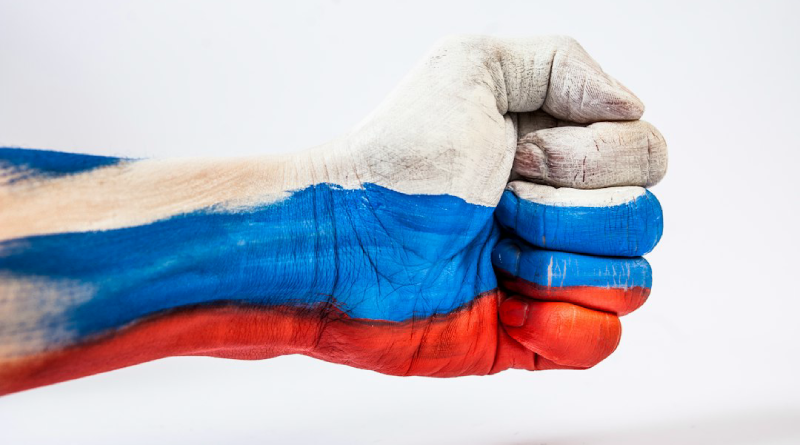Russia Pursues Alliances To Undermine the West. Yawn.
Or, why I am confident that Russian confidence is not terribly significant.
By Daniel Drezner, Professor of International Politics at The Fletcher School
The hard-working staff here at Drezner’s World has been chomping at the bit to write newsletters about all the recent developments in world politics. Seriously, a lot is going on: the ICJ ruling on Israel, the Biden administration’s response to Houthi provocations in the Red Sea, Kim Jong Un’s ever-louder reminders that he’s still around, and the wider debate about whether the Long Peace has ended.
That’s on me — it’s been a busier start to the semester than I was expecting. There are grant deadlines and paper deadlines and committee report deadlines and so forth.1But for the first time in a spell, those pressures are growing less acute. Which means I can start attempting to weigh in on global affairs with something more than, “Boy, Yemen, I don’t know.”
To get back into foreign policy blogging shape, however, let’s start with an easy take: analyzing hyperbolic Russians claims.
Over the weekend the Washington Post’s Catherine Belton had a breathlessly reported front-pager with the headline, “Russia projects confidence as it pursues alliances to undermine West.” That sounds bad! Upon further reading, however, there is way less to this story than meets the eye.
Let’s see how it starts!
Russia is increasingly confident that deepening economic and diplomatic ties with China and the Global South will allow it to challenge the international financial system dominated by the United States and undermine the West, according to Kremlin documents and interviews with Russian officials and business executives.
Russia has been buoyed by its success in holding off a Western-backed Ukrainian counteroffensive followed by political stalemates in Washington and Brussels over continued funding for Kyiv. In Moscow’s view, the U.S. backing of Israel’s invasion of Gaza has damaged Washington’s standing in many parts of the world. The confluence of events has led to a surge of optimism about Russia’s global position.
The key words in those paragraphs are “confident” and “buoyed.” It’s basically a vibes check on the Russian elite. Which is fine — it’s good to know what Russia’s elite is thinking! But it would also be good to know whether those vibes are grounded in anything other than, “let’s puff out our chest when we talk to American reporters.”
So what is the evidence that Russia will be able to undermine the Western economic order? Let’s get back to the guts of Belton’s story:
Internal Russian Security Council documents obtained by a European intelligence service and reviewed by The Washington Post, show that the Kremlin convened meetings in 2022 and 2023 on ways to undermine the dollar’s role as the world’s reserve currency. The ultimate goal, one of the documents stated, was to dismantle the post-World War II global financial system and the power it gives Washington.
“One of the most important tasks is to create a new world order,” one of the documents dated April 3, 2023, states. “Western countries led by the United States have tried to impose their own structure, based on their dominance.”
Another document, written by a close ally of Security Council chief Nikolai Patrushev and circulated in the Kremlin this summer, advocated greater cooperation between China and Russia on artificial intelligence, cyber systems and the “internet of things.” As part of that, the document envisioned Beijing and Moscow creating a new financial system and a Eurasian digital currency based on alternative payment systems, such as blockchain, to bypass the Western dominance of global financial transactions.
Oh, so Russia is proposing to working with China to undermine the dollar as the world’s reserve currency?! Wow, that is “news”!! And by “news” I mean “new information as of the year 2008.” Because Russia has been lobbying China to help bring down the dollar for the last sixteen years now. It will only be actual news when China agrees.
As former Treasury Secretary Hank Paulson wrote in his memoir, in the summer of 2008 Chinese officials told him that top-level Russian officials reached out to their Chinese counterparts to propose jointly selling Fannie Mae and Freddie Mac bonds in the hopes that it would exacerbate the U.S. financial meltdown. The Chinese declined.
Oh, and in 2014 Vladimir Putin warned the United States yet again that its sanctioning activity was threatening the dollar’s role as a global reserve currency, claiming: “We already see that more and more countries are looking for ways to become less dependent on the dollar and are setting up alternative financial and payments systems and reserve currencies. I think that our American friends are quite simply cutting the branch they are sitting on. You cannot mix politics and the economy, but this is what is happening now.” Again, not much happened.
The paragraphs quoted above contain a lot of Russian proposals that sound like more of the same. Russia keeps proposing, and China keeps… not doing much in response. To be fair, China has its own financial issues to deal with right now and does not need the mishegoss of trying to challenge the dollar right now.
The story is not entirely devoid of concerns. Russia’s belief that it can use the war in Gaza to drive a further wedge between the West and the rest is not entirely misplaced. But that has absolutely nothing to do with global financial markets.
As 2024 starts the U.S. economy is humming along quite nicely. Meanwhile the Russian economy, has endured under the sanctions but it’s not doing great. According to former Russian central bank official Alexandra Prokopenko, faces an impossible trilemma: financing the war, keeping the civilian economy healthy, and maintaining macroeconomic stability.
In other words: the Russians can sound as confident as they want to Western reporters. That does not mean their confidence is correctly placed.
[1] Also, fun American politics was happening!
(This post is republished from Drezner’s World.)

